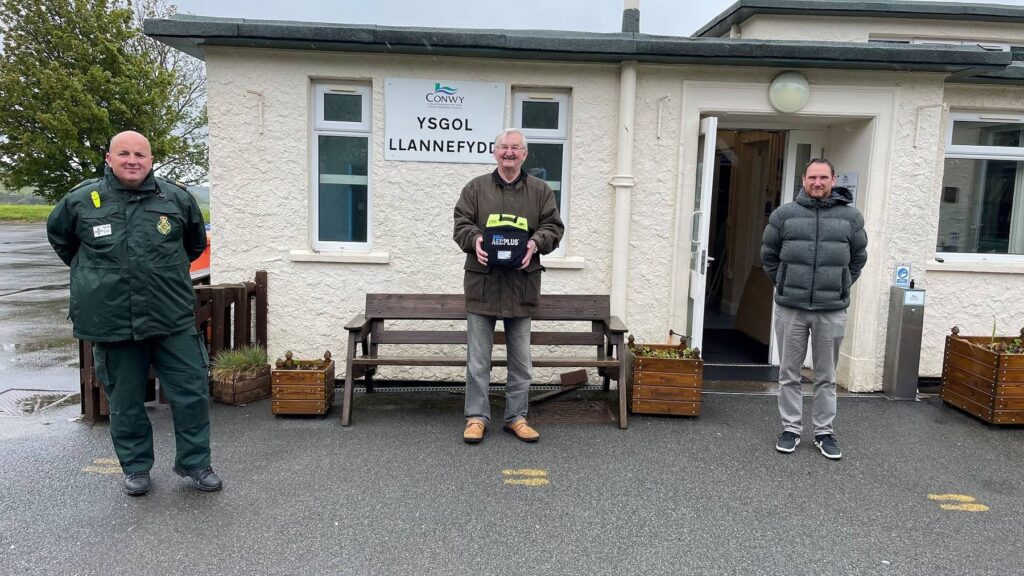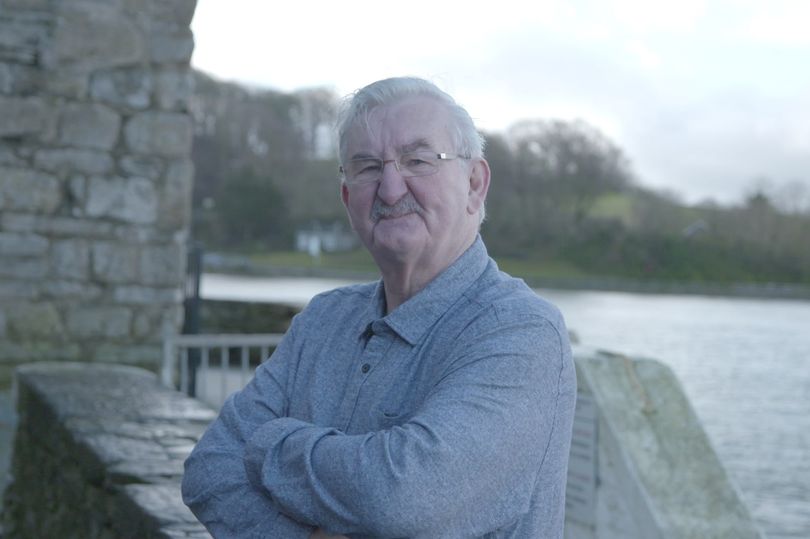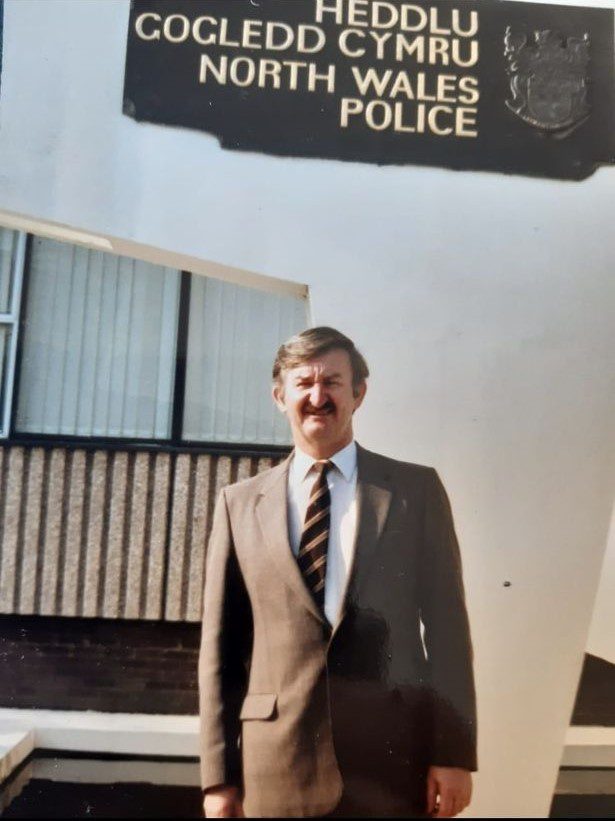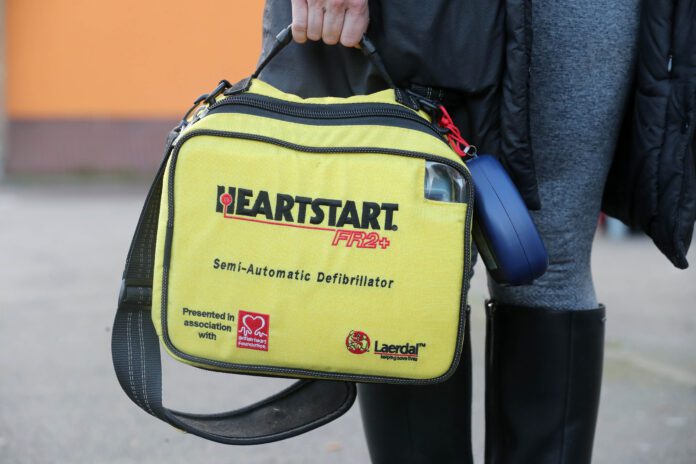Leading health organisations urge defibrillator owners to keep registering their lifesaving devices
Emergency services and charities are urging defibrillator owners across Wales to register their devices on a groundbreaking national database called The Circuit in a big push to bring the number of mapped defibrillators in the UK past the 50,000 mark. This significant milestone would represent half of the estimated 100,000 defibrillators in the UK being registered on The Circuit.

Today in Wales there are around 5,000 public access defibrillators registered with a guardian on The Circuit.
The Circuit’s aim is to map all public access defibrillators, so that when someone has a cardiac arrest, 999 call handlers can direct bystanders to the nearest registered defibrillator while they wait for the ambulance to arrive.
• There are around 2,800 out-of-hospital cardiac arrests (OHCA) in Wales each year, but just 1 in 20 people survive.
• Every minute without cardiopulmonary resuscitation (CPR) and defibrillation reduces the chance of survival by up to 10 per cent,
Early CPR and defibrillation can more than double the chances of survival.
• It’s estimated that public-access defibrillators (PADs) are used in less than 10 per cent of OHCAs across the UK.
To improve survival rates, the British Heart Foundation (BHF), Resuscitation Council UK (RCUK) St John Ambulance, and Association of Ambulance Chief Executives (AACE), have come together to roll out The Circuit: the national defibrillator network.
Still far to go

Over 46,000 defibrillators have already been added to the database so far, spurring on the latest appeal to defibrillator guardians to pass the 50,000 mark.
It’s estimated that tens of thousands of defibrillators remain unknown to ambulance services, meaning 999 call handlers can’t direct bystanders to them in the event of a cardiac arrest.
BHF Cymru, Welsh Ambulance Services NHS Trust, St John Ambulance Cymru, and Save a Life Cymru are urging anyone in Wales who looks after defibrillators in workplaces, communities, shopping and leisure centres, and all public places, to register them on The Circuit.
The Circuit, which is already live in 13 of the 14 ambulance service areas across the UK and will become nationwide soon, could help to save thousands of lives over the coming years – but it’s vital that as many defibrillators as possible are registered on the database for it to work effectively.
Rhodri Thomas, Head of BHF Cymru says: “A cardiac arrest can happen anywhere, at any time, to anyone, but quick CPR and defibrillation can double the chances of survival. Minutes count and knowing where the nearest defibrillator is could be the difference between life and death.
“We’re making great strides down the path of getting a truly nationwide picture of where defibrillators are located, but now isn’t the time to slow down the pace. We’re tantalizingly close to a major milestone of 50,000 defibrillators mapped on The Circuit, and we’ll need the help of every defibrillator owner in Wales to help us to smash that target.
“If you or someone you know is a defibrillator guardian, then we urge you to register your device. One simple action could save someone’s life.”
The organisations are aiming to see at least 20,000 more defibrillators unknown to The Circuit registered by the end of 2022 – which would bring the total number up to around 70,000.

Gwyn’s story
Ex-CID detective Gwyn Roberts believes he owes his life to the kindness of strangers who performed CPR (cardiopulmonary resuscitation) and used a public access defibrillator when he suffered a cardiac arrest two years ago.
78-year-old Gwyn, from Caernarfon, was crossing the street in Llandudno on 27th February 2020 when he collapsed. Gwyn insists it was a case of “the right place at the right time” for the incident to happen, with passers-by who knew what to do to help save his life.
Gwyn says: “I was walking to collect my car and approached a pedestrian crossing when I felt my vision blur and felt like I was going to lose consciousness. Everything went out of focus and the realisation came that I was going to go down and I couldn’t do anything about it.
“My last recollection is my fingertips scrambling on the bollard to stop myself before everything went black, it was like a light switch.”
Gwyn explains that a woman, who has never been identified, called 999 and was told to fetch a defibrillator from a café nearby. Three members of staff brought the device and used it on Gwyn. Meanwhile, an off-duty firefighter and RNLI lifeboat volunteer arrived and performed CPR. A paramedic arrived with the Wales Air Ambulance, followed by the land ambulance which took Gwyn to Ysbyty Glan Clwyd. He was discovered to have a blocked coronary artery and a stent was inserted before he was transferred to the Intensive Care Unit to recover.
Gwyn was gifted a defibrillator by the manufacturer of the device which saved his life, which he presented to Ysgol Llannefydd, in Denbigh, to ensure the rural community has access to the lifesaving equipment.
He says, “It’s vital that every public access defibrillator in the UK is registered on The Circuit. A cardiac arrest can happen anywhere, without warning. It’s essential that a passer-by, your friends or family can phone 999 and be directed to the nearest available defibrillator as quickly as possible. It saved my life and I am passionate that other lives can be saved too, as long as people can get to the nearest device as soon as possible.”
Carl Powell is the Clinical Support Lead for Cardiac Care with the Welsh Ambulance Service. He says, “A cardiac arrest occurs when the heart stops beating effectively and normal breathing ceases. This results in the casualty becoming unresponsive and urgent intervention is required, you should call for help, start CPR and use a defibrillator. Using a defibrillator is very, very safe. It will only deliver a shock to a patient if the patient requires the shock from the machine. The device will shock the patient to restart the heart into a normal rhythm. You can do no harm by using one.
“Defibrillators can only save lives if people know where they are. We encourage everyone responsible for a defibrillator to register it on The Circuit so the 999 call-handler can direct a member of the public to it, when someone has an out-of-hospital cardiac arrest.”
Julie Starling Clinical Out of Hospital Cardiac Arrest Programme Manager for Save a Life Cymru adds, “Although extremely rare, we do know of some instances of vandalism which have occurred to some of the 5,000 defibrillators registered in Wales. It’s extremely unfortunate when these incidents take place, but having the defibrillator registered on The Circuit, with its serial number, reduces the re-sale value of the defibrillator and makes it significantly easier for us to track its history if it’s sold second hand. The other really important thing is when a defibrillator is registered it makes it significantly easier for us to return a used or found defibrillator to the appropriate cabinet.”
Helen Smith, Chief Executive Officer at St John Ambulance Cymru said, “Wales has some of the poorest survival rates in the UK for people experiencing an out-of-hospital cardiac arrest. Numerous studies show the positive effect CPR and early defibrillation can make to someone who needs it.
“We’ve been working alongside BHF Cymru and other organisations for several years educating the public about the impact defibrillators can and do make in an emergency, as well as training people in how to use them.
“Knowing where to find your nearest defibrillator in a life-threatening situation can quite literally mean the difference between a life lost and a life saved. Together with our partners, we’re urging everyone who owns or looks after one of these lifesaving devices to register them for free through The Circuit to help save more lives.”
Deputy Managing Director of the Association of Ambulance Chief Executives (AACE) Anna Parry said: “Calling 999 and being able to give CPR and early defibrillation can make a huge difference in an emergency, which is why it’s so important to know how to locate a defibrillator. The Circuit provides a national database of information and will help ensure the benefits of defibrillators are maximised and more lives saved, as more become registered.”
It’s free to register your defibrillator onto The Circuit, and you only have to do it once. You can also register multiple defibrillators if you are the guardian to more than one. Visit TheCircuit.UK for more information or to register your defibrillator.
Help keep news FREE for our readers
Supporting your local community newspaper/online news outlet is crucial now more than ever. If you believe in independent journalism, then consider making a valuable contribution by making a one-time or monthly donation. We operate in rural areas where providing unbiased news can be challenging. Read More About Supporting The West Wales Chronicle























